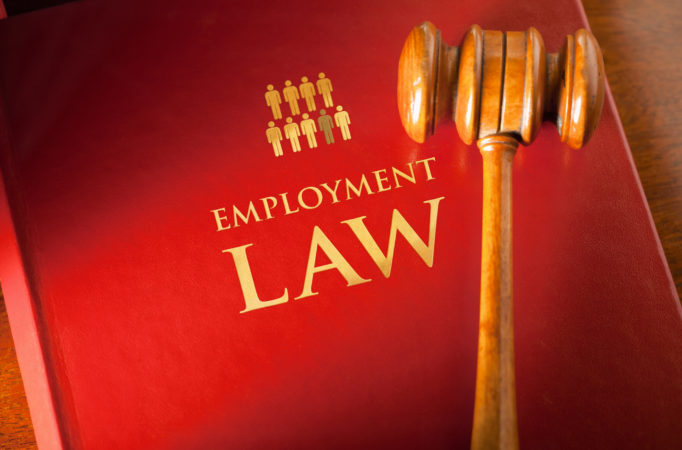Employment & Labor Law
U.S. Supreme Court Expands LGBTQ Rights
On June 15, 2020, the United States Supreme Court issued a landmark decision expanding protections for gay and transgender individuals in a group of three cases under the umbrella of Bostock v. Clayton County, Georgia, Docket No. 17-1618. The 6-3 majority held that an employer who fires an individual merely for being gay or transgender discriminates on the basis of sex in violation of Title VII of the Civil Rights Act of 1964. Previously, most courts held that adverse employment decisions against gay and transgender individuals were not considered sex discrimination under federal law.
Clayton County, Georgia fired Gerald Bostock for conduct “unbecoming” of a county employee after he joined a gay recreational softball team. Altitude Express fired Donald Zarda days after he mentioned being gay. And R.G. & G.R. Harris Funeral Homes fired Aimee Stephens for living and working as a female, even though she presented as a male when interviewed and hired. The employers did not dispute the employees were fired for being gay or transgender, only that the statutory text of Title VII, and the legislative history, do not support liability for discrimination on that basis. They argued that because protections for gay and transgender individuals was not contemplated or expressly provided for by the legislature at the time Title VII was enacted, the term “sex discrimination” does not apply to gay or transgender persons.
The Supreme Court decision embraces three primary concepts: 1) regardless of how an employer labels or refers to discriminatory practices or what the intentions and motivations are, if an employer fires an employee for being homosexual or transgender, it intentionally discriminates on the basis of sex; 2) an employee’s/applicant’s sex need not be the sole or primary cause of the employer’s adverse action to be considered sex discrimination as long as it is part of the motivation; and 3) it is not a defense to liability if an employer treats males and females comparably. These concepts are derived from prior Supreme Court cases: Phillips v. Martin Marietta Corp., 400 U.S. 542 (1970); Los Angeles Dept. of Water and Power v. Manhart, 435 U.S. 702 (1978); and Oncale v. Sundowner Offshore Services, Inc., 523 U.S. 75 (1998).
Writing for the majority, Justice Neil Gorsuch used strong, unequivocal language to find that an employer commits sex discrimination when it makes an employment decision based, at least in part, on a person identifying as gay or transgender:
It makes no difference if other factors besides the plaintiff’s sex contributed to the decision or that the employer treated women as a group the same when compared to men as a group. A statutory violation occurs if an employer intentionally relies in part on an individual employee’s sex when deciding to discharge the employee. Because discrimination on the basis of homosexuality or transgender status requires an employer to intentionally treat individual employees different because of their sex, an employer who intentionally penalizes an employee for being homosexual or transgender also violates Title VII. Id. at *9-12.
Justices Samuel Alito, Clarence Thomas, and Brett Kavanaugh dissented. The primary argument of the dissenters is that the Court usurped the authority of the legislature. These Justices point to a House of Representatives bill passed last year with the stated intent to amend Title VII to define sex discrimination to expressly include “sexual orientation” and “gender identity,” but the bill has not yet been passed in the Senate. The dissent reasoned that such a bill would not be proposed if Title VII were understood to include sex discrimination on the basis of sexual orientation or gender identity. It appears the bill was designed to undo the effect of prior lower court decisions. To that end, Justice Alito’s dissent states, “[m]any will applaud today’s decision because they agree on policy grounds with the Court’s updating of Title VII. But the question in these cases is not whether discrimination because of sexual orientation or gender identity should be outlawed. The question is whether Congress did that in 1964. It indisputably did not.” Id. at *19.
The federal statute involved here, Title VII, applies to employers with 15 or more employees. The comparable Pennsylvania employment discrimination statute (the Pa. Human Relations Act) applies to employers with at least four employees. It contains language equivalent to Title VII in prohibiting discrimination on the basis of sex but does not specifically mention sexual orientation or transgender status. This is similar to many other states. We expect state courts will increasingly follow the U.S. Supreme Court interpretation that employment decisions related to a person’s sexual orientation or transgender status are based on sex and thus illegal. Therefore, employers everywhere must be cognizant of the changing landscape surrounding protections for LGBTQ persons in the workplace and other areas. It is important to inform management and human resources personnel and ensure training modules are updated to incorporate this information, along with ensuring handbooks and other governing documents are updated to reflect compliance with new laws and court decisions. The employment attorneys at Houston Harbaugh are here to help you successfully navigate these issues to promote a positive work environment and limit exposure to liability.
Please feel welcome to contact Craig M. Brooks and Catherine S. Loeffler with any questions.
About Us
Claims and suits brought against employers by employees are a large part of the cases being handled by the Employment lawyers at Houston Harbaugh. We focus on assisting and counseling our clients to be positioned to avoid claims, and if the claims are brought, to be prepared to defend against them.

Craig M. Brooks - Practice Chair
An employment and labor attorney, Craig primarily represents management, providing advice on how to handle employee issues and actions, as well as defending or pursuing claims in court and before government agencies on matters.
An employment and labor attorney, Craig primarily represents management, providing advice on how to handle employee issues and actions, as well as defending or pursuing claims in court and before government agencies on matters including:
- Employment discrimination claims
- Wage and hour matters
- Sexual and other harassment investigations and claims
- Family and Medical Leave Act
- Wrongful discharge
- Labor/Union matters
- Restrictive covenants
- Affirmative action programs
- Defamation
- Privacy
Craig also represents individuals with advice and pursuing claims arising out of their employment.

